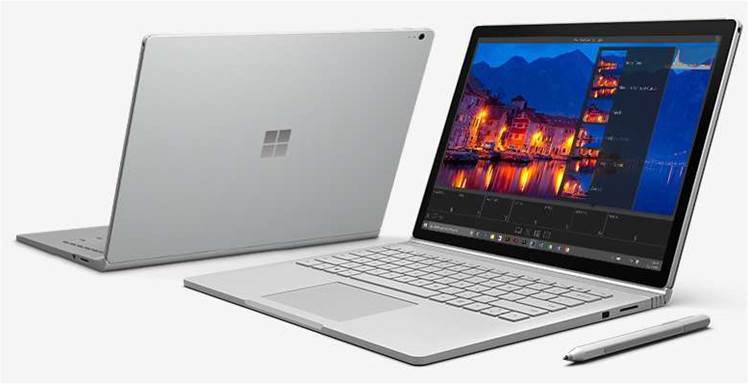Microsoft has refreshed its range of devices for the Windows 10 operating system, launching a laptop personal computer for the first time alongside a new Surface Pro 4 tablet and Lumia smartphones.

Billed as "the ultimate laptop" - with a claimed better performance than the MacBook Pro - the Surface Book has a 13.5-inch touch-enabled hi-resolution (3000 by 2000) PixelSense display that is detachable and can be folded behind the device.
A Surface Pen is included with the Book, which is built with a magnesium cage and weighs 728 grams.
The Surface Book starts at U$1499 for the low-end version with 128 gigabyte storage, Intel Core i5 processor and 8GB of system memory. The top of the range Surface Book comes with 512GB of solid state storage, Intel Core i7 processor and 16GB RAM, for U$2699.
Australian pricing for the Surface Book starts at A$2299. Microsoft will start taking pre-orders from October 7, and the laptop will become available five days later.
Microsoft also introduced the Surface Pro 4 Windows 10 tablet, priced between U$899 (Intel Core m3/4GB RAM/128GB storage) and U$1499 (Intel Core i5/16B RAM/256GB) with a 12.3-inch, 2763 by 1824 resolution PixelSense screen. It weighs 786 grams.
The Surface Book and Surface Pro 4 will use Microsoft's new Hello biometric authentication, with facial recognition.
Despite continuing to lag in the smartphone market behind Apple and Samsung, Microsoft took the covers off three new Lumia devices running Windows 10.
The Lumia 950XL weighs 165g and sports a 5-7-inch 2560 by 1440 (518 pixels per inch) display, uses a 64-bit Qualcomm octa-core Snapdragon 810 processor, and has 32GB of storage.
Its smaller sibling, the Lumia 950, weighs 150g and has a 5.2-inch screen with the same resolution as the 950XL.
Both the 950 and the 950XL have 20 megapixel PureView rear-facing cameras with Carl Zeiss lenses, 4K high-resolution video support, and triple LED flashes. The front-facing camera has 5MP, 1080p resolution.
The 950XL and 950 will retail in the US for US$549 and US$649 respectively, with availability in "select markets" starting in November this year.
Microsoft also introduced an updated version of its fitness wearable, the Band 2, which comes with the Cortana digital personal assistant, apps for Windows, Apple iOS and Google Android, and a two-day battery life.
Developers will be able to buy the long-awaited HoloLens 3D headband, Microsoft said, in the first quarter of next year for US$3000 a piece.





_(23).jpg&h=140&w=231&c=1&s=0)
_(28).jpg&h=140&w=231&c=1&s=0)
.png&h=140&w=231&c=1&s=0)



_(26).jpg&w=100&c=1&s=0)

 iTnews Executive Retreat - Security Leaders Edition
iTnews Executive Retreat - Security Leaders Edition












_(1).jpg&h=140&w=231&c=1&s=0)



